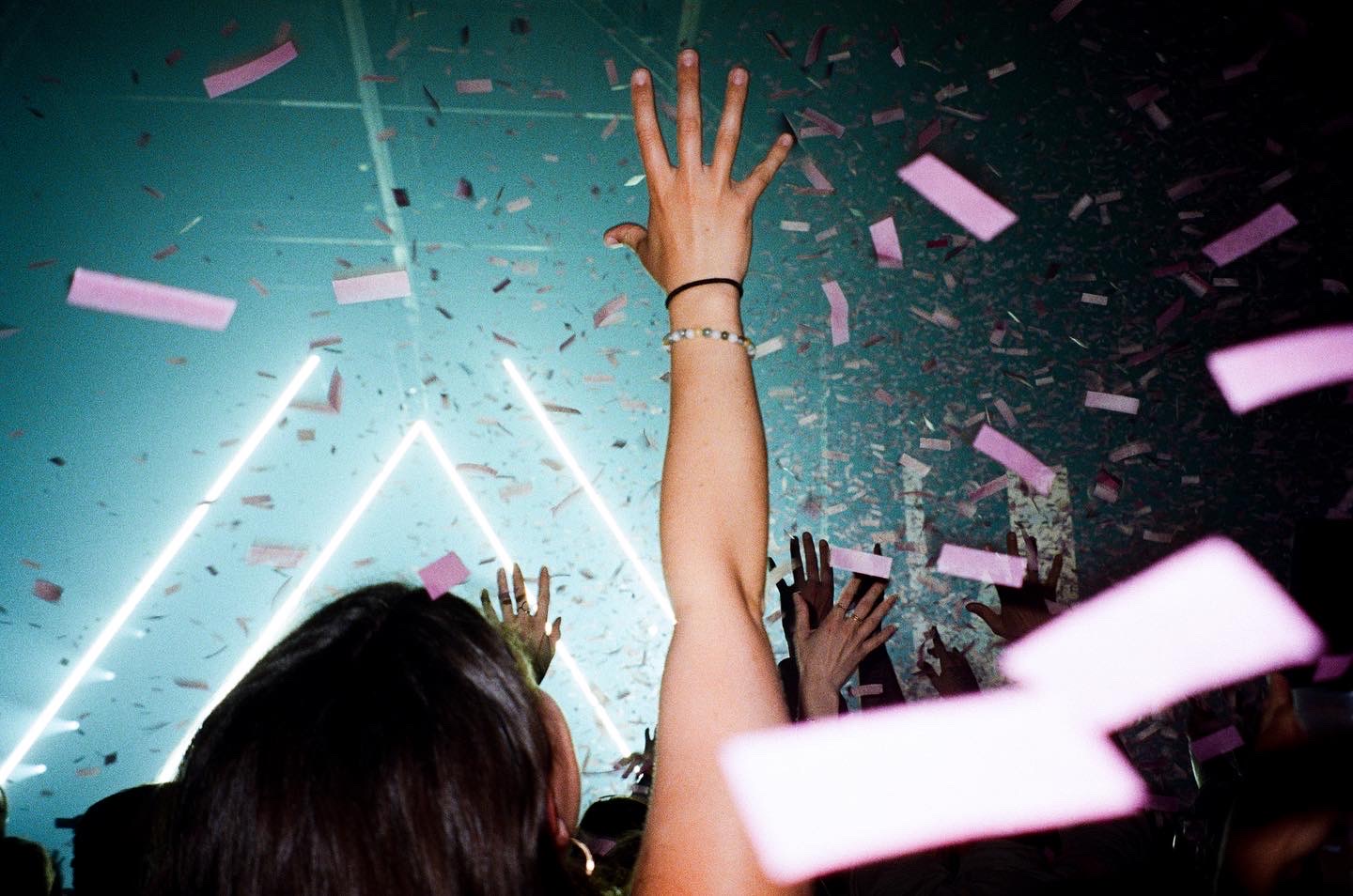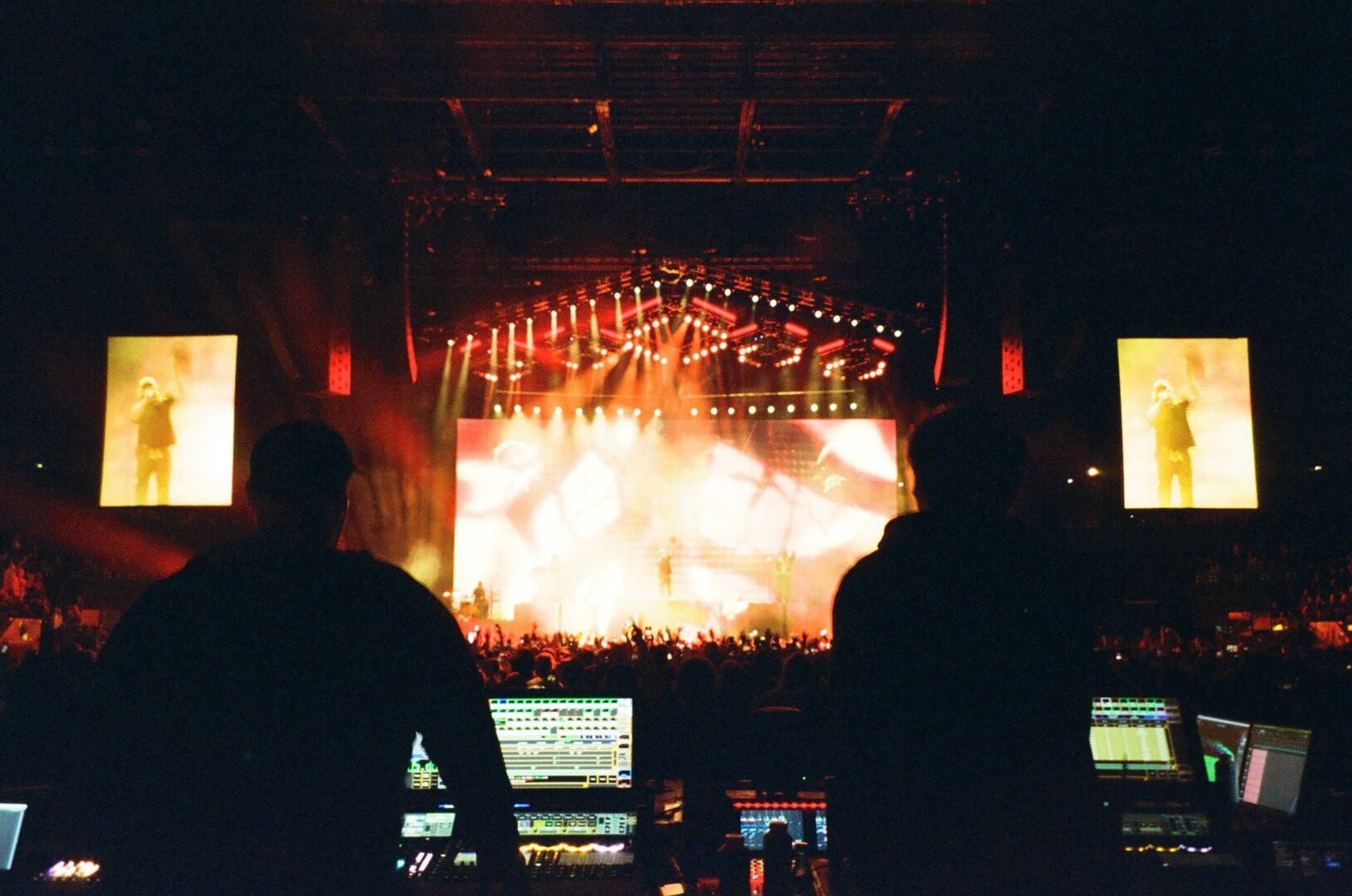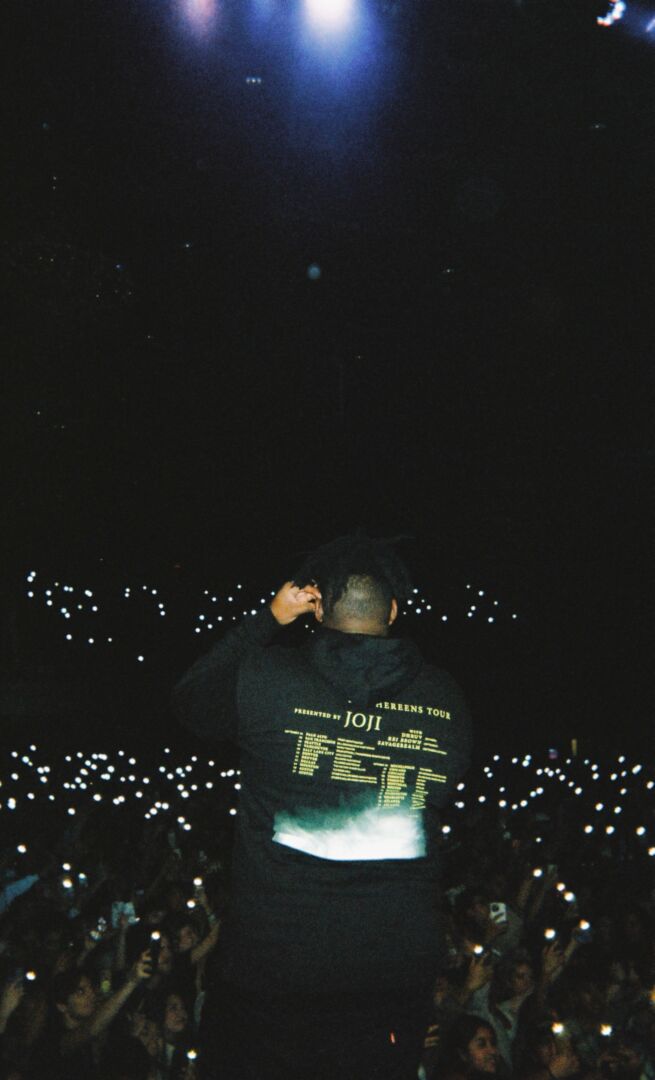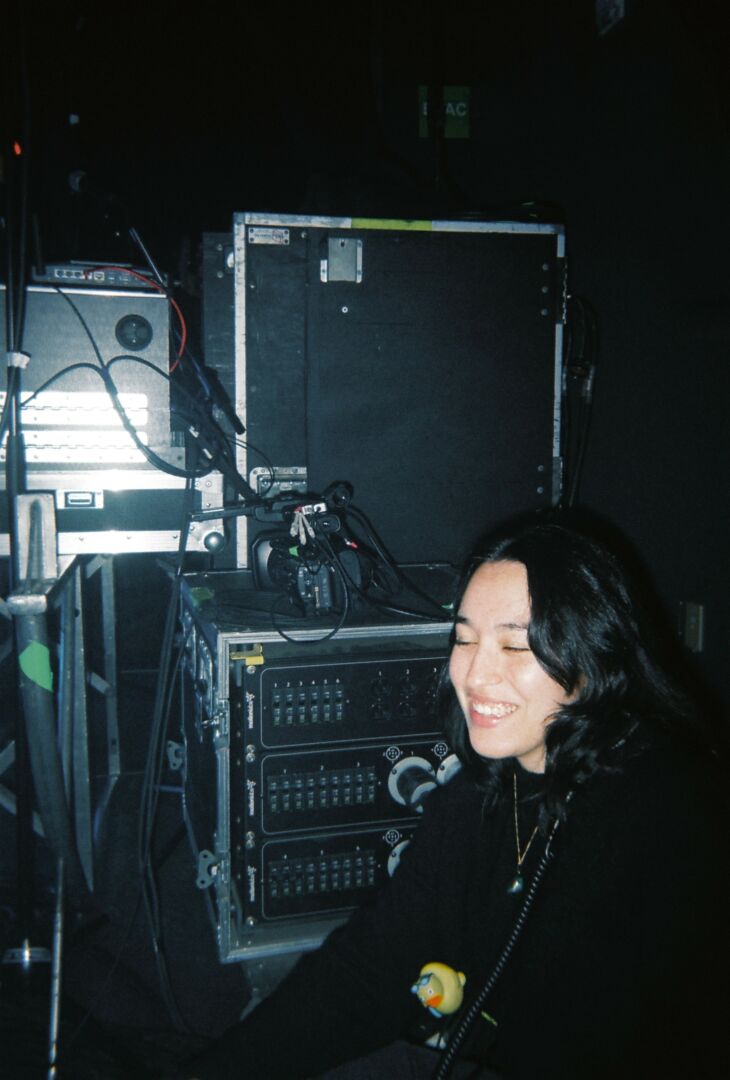Meet Lou Rochdi | Tour Manager, Production Manager & Production Coordinator


We had the good fortune of connecting with Lou Rochdi and we’ve shared our conversation below.
Hi Lou, what role has risk played in your life or career?
Risk-taking has been a defining factor in both my career and life. I was born and raised on a small French island in the Indian Ocean, L’île de la Réunion (Reunion Island), where concerts were rare. My first non-classical live show wasn’t until I was 17 and I was in the band organizing it. Before starting my career, I had seen maybe two concerts, yet today I tour internationally with arena-level artists across Europe, North America, and Asia.
Looking back at where I started, it’s surreal to see how far I’ve come. None of this would have been possible without taking risks. Two in particular, were pivotal in shaping the career I have today:
1. Moving to mainland France at 18: Leaving behind my friends and family to start a new life 6,000 miles away was a leap but it taught me that moving far isn’t as scary as it seems.
2. Quitting a master’s degree to move to Los Angeles: Logistically and financially, this was the biggest risk I ever took in my life. The complexities of US visas, the inability to work for a period as a student, and the uncertainty of securing future visas made it a gamble. But it was during this year that I met the people who offered me my first touring gig, opening the door to everything I’ve achieved since.
These decisions weren’t easy, but they were essential to getting where I am today. It’s important to acknowledge that the ability to take risks is tied to the strength of one’s safety net. I was fortunate to have savings to allow me to live in LA without the ability to work and the option to return home to my parents if things didn’t work out. Not everyone has that kind of support, and without it, the capacity to take risks becomes limited. Ultimately, risk-taking is about taking calculated risks—knowing what you’re willing to lose and where you’ll land if things don’t go as planned.

Let’s talk shop? Tell us more about your career, what can you share with our community?
The biggest challenge in getting where I am today—working full-time in music—was being born French. While France is a beautiful and safe country I’m very grateful for, it lacks a strong entertainment focus compared to places like the US, UK, South Korea, or even Latin America. Our music doesn’t export, so the market is small, and job opportunities in the industry are scarce. On top of that, networking is often stigmatized, making it nearly impossible to break into the industry without pre-existing connections.
I realized I had to leave France, so I moved to the US at 21, but the struggle didn’t end there. As an international student, navigating visas, job restrictions, and the reality of being overlooked for positions because of sponsorship requirements was tough. Many companies won’t bother with the hassle of hiring someone who needs a visa when local candidates are readily available.
In college, meeting industry execs often felt disheartening because their advice didn’t apply to international students. They’d say “apply for internships” but clicking “requires sponsorship now or in the future” on an application would immediately trigger rejection emails within seconds—making it clear our resume was not even taken into consideration. But despite this, I want to offer hope. If you’re an international student, don’t give up. Be strategic. Instead of targeting the big American companies that are likely to reject you by default, look for innovators, start-ups, or international firms that understand the visa process and might be willing to take a chance on you.
That’s how I overcame my biggest obstacle. I found a Belgian company looking to implement itself more in the US, the CEO saw something in me and was willing to take a risk even through the constricting work authorization timelines, and sponsorship needs. It took a lot of work and some luck but if I did it, you can do it too.
I pride myself in my resilience and, at times, my stubborn belief that nothing is impossible. We don’t all start from the same place—some have financial resources, others a strong family support system, or a wide network, and some are simply born in the right place. It may be harder for some, but that doesn’t mean it’s out of reach. The path may be tougher, but it’s still possible.

Any places to eat or things to do that you can share with our readers? If they have a friend visiting town, what are some spots they could take them to?
Funny you mention that—on my last tour, we had a day off in Los Angeles, and I made it my mission to change the mind of my favorite Belgian crew member, who had never set foot in LA but pretended to hate it. By the end of the day, I succeeded. So, here’s how to spend 12 hours in LA, moving from East to West and back (trust me, it’s doable—I did it).
Los Feliz – Start at Café Nido and grab your go-to caffeinated drink. Then hop across to Trader Joe’s for some snacks—this will make sense later!
Silverlake – My favorite area! Time to thrift. Starday Vintage is a must, even if you don’t buy anything—it’s like stepping into a time capsule. Right across the street is The Bearded Eagle, with a more curated selection, but I always find a gem. Now, let’s eat! As the French person I am, Figaro Bistrot is my emotional support home away from home in LA. I highly recommend their Croque Monsieur. After lunch, head to Skylight Books to grab something to read for later.
Beachwood Drive – Next, head to Beachwood Drive for the best view of the Hollywood sign wrapped between the palm trees. If you’re a Harry Styles fan, this is your cue to stop by Beachwood Café!
Venice Beach – Yes, it’s a bit of a drive, but you’ll want to hit the beach while it’s still daylight. Snack on those Trader Joe’s goodies, crack open that book, and tan. Venice Beach may not be the prettiest, but it’s the culture—the skaters, the shops, the energy—that makes it special. Plus, your friends might recognize it from all those movies.
Sawtelle – On the way back, we’re stopping for dinner at Daikokuya, my favorite spot for ramen. Trust me, it’s worth it. Might also grab some Boba at Volcano Tea.
Griffith Observatory – We’ll end the day at Griffith Observatory, one of my favorite LA landmarks. Go during the sunset or at night for stunning views of the city—it’s unbeatable.
I know there’s a lot more to see, but for the sake of this experiment, this is the itinerary that won over my very skeptical friend. It’s a proven method!

The Shoutout series is all about recognizing that our success and where we are in life is at least somewhat thanks to the efforts, support, mentorship, love and encouragement of others. So is there someone that you want to dedicate your shoutout to?
When I first decided to pursue a career in the music industry, one of my first steps was to Google the different roles I could explore. Suprisingly, finding up-to-date resources was a challenge. So, I took matters into my own hands. I connected with other students who shared the same frustration, and together, we formed a group called Gen Admission.
We began by interviewing industry professionals to produce educational content about their roles. What started as a small project evolved into a website (www.genadmission.org) and eventually became a 501c3 non-profit. We’ve now partnered with Chartmetric, the Digilogue, and Sony Music UK to provide opportunities for aspiring talent in the industry. This year, we launched a blog featuring a team of contributing writers who produce insightful articles on music industry trends, album and concert reviews, interviews, job search tips, and more.
Gen Admission has been instrumental in my career journey. The individuals’ dedication to music has taught me a certain resilience that has kept me going, even during the most difficult times. It’s been an essential support system, especially coming from an environment where few people understood the music industry.
I want to give special shoutout to Anna Sykes, Stefani Riskijevic, Ixe Alba, and Frangeska Papageorgiou, who have been trailblazers in shaping this organization.
Website: https://lourochdi.wixstudio.io/production
Instagram: https://www.instagram.com/lou_rhd/
Linkedin: https://www.linkedin.com/in/louisarochdi/
Other: www.genadmission.org — the non-profit I founded and mentioned in the article 🙂


Image Credits
Dalal Rajhi (Instagram: dalal.rajhi), Rory Barnes (Insagram: rorybarnes_), Lou Rochdi (Instagram: lou_rhd)
